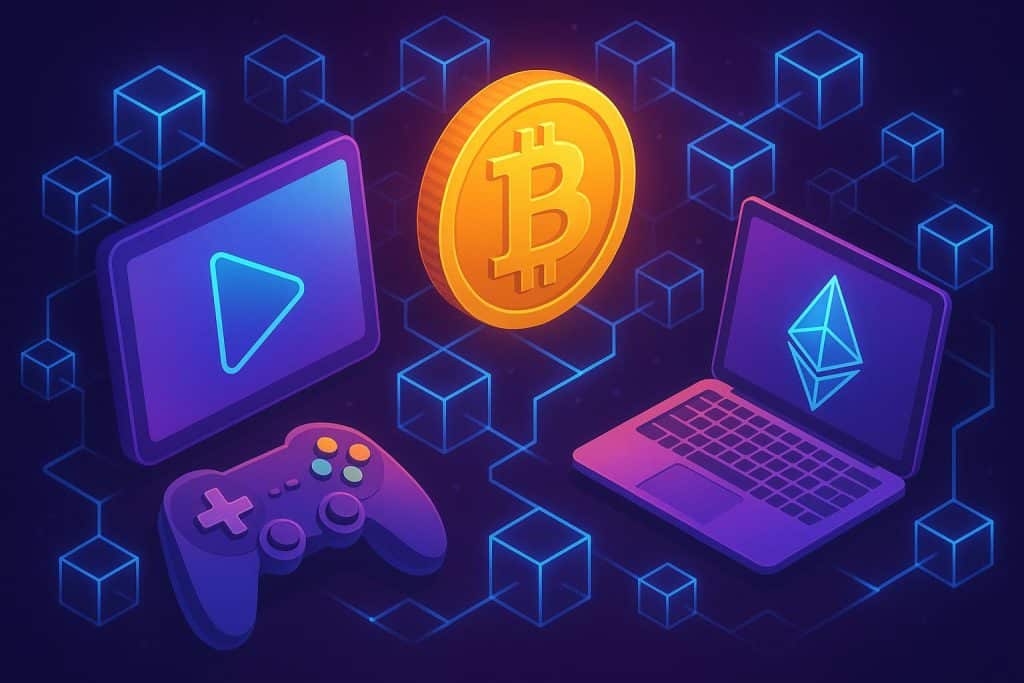Crypto used to be all about charts, tokens, and market hype. Now it’s changing how we play, watch, and even interact online. It’s no longer a niche or a buzzword; it’s the backbone of a fast-growing digital entertainment economy built on transparency, ownership, and speed.
The significant shift in 2025 is that crypto is no longer just for traders. It’s for gamers, creators, streamers, and everyday users who want more control over what they spend and earn online.
The Token Era Has Arrived
One of the coolest ideas to emerge from Web3 is tokenization. Imagine if every digital interaction, playing a game, supporting a streamer, or unlocking an exclusive event, earned you something tangible. That’s what tokens do.
In gaming, players now win actual assets that hold value outside the game. These can be sold, traded, or even used as collateral on other platforms. It’s a huge leap from the old “you play, they profit” model that dominated gaming for decades.
And honestly, it’s refreshing to see users finally getting a fair share of the ecosystem they help build.
When Crypto and Gaming Collide
Crypto and gaming were destined to merge. Both worlds thrive on community, creativity, and competition. Blockchain technology just gave them the tools to connect seamlessly.
Traditional gaming had its pain points, slow withdrawals, sketchy fairness claims, and limited player ownership. Crypto fixed those. It made payments instant, records public, and ownership provable.
That’s part of why popular crypto casinos have exploded lately. They take the excitement of classic casino games and pair it with the speed and security of blockchain. No waiting days for payouts, no hidden fees, and no middlemen. Just fast play, fair odds, and a clear trail of every transaction.
Fair Play Meets Transparency
Fairness has always been a sticking point for online gaming. Blockchain’s “provably fair” systems changed that forever. Players can now verify every spin or card draw through public algorithms; no need to simply trust the platform.
It’s the same kind of accountability people have wanted for years. And it’s forcing the entire iGaming industry to raise its standards. Even non-crypto operators are borrowing blockchain-style verification tools to stay relevant.
Some platforms are even experimenting with player revenue sharing, rewarding loyal users with small cuts of the action. Think of it as turning regular players into mini stakeholders.
NFTs and Virtual Worlds Take It Further
Of course, ownership in entertainment doesn’t stop at tokens. NFTs have gone way beyond collectibles and artwork. Gamers use them to represent unique items, properties, or avatars, each one verifiably theirs.
Metaverse-style platforms, such as The Sandbox and Decentraland, are blurring the lines between gaming, casinos, and social experiences. You can play, earn, and hang out with people in immersive worlds powered by crypto economies.
It sounds futuristic, but it’s already happening, and it’s growing faster than most people realize.
The Regulation Balancing Act
With all this growth comes oversight. Regulators worldwide are working to strike a balance between innovation and protection. Places like Malta and the Philippines are introducing frameworks for licensed crypto gaming, bringing structure to a once wild-west landscape.
To be fair, regulation isn’t the enemy; it’s what helps serious operators thrive. Licensed platforms with KYC and AML compliance are proving that crypto gaming can be both fun and responsible.
And the result? More trust, more players, and a healthier industry overall.
Where It’s All Heading
Looking ahead, blockchain, AI, and immersive tech are set to merge into one seamless digital layer. Smart contracts will handle payouts automatically. Streaming services may reward creators in real time. Viewers could earn tokens just by engaging with content.
That’s not a distant dream, it’s the direction entertainment is already heading. Crypto is making experiences faster, fairer, and more personal.
It’s giving users power back over their money, time, and data, something the traditional web rarely offered.
Final Thoughts
The rise of crypto in entertainment isn’t some passing tech fad. It’s the next natural step in how people play, create, and connect online.
From tokenized games to decentralized casinos, it’s reshaping what “fun” means in the digital age. The platforms leading the charge, especially those among today’s popular crypto casinos, are showing how blockchain can turn everyday play into something transparent, fast, and genuinely rewarding.
And if this is where we are in 2025, just imagine what the next few years will look like when the line between gaming and finance disappears completely.
